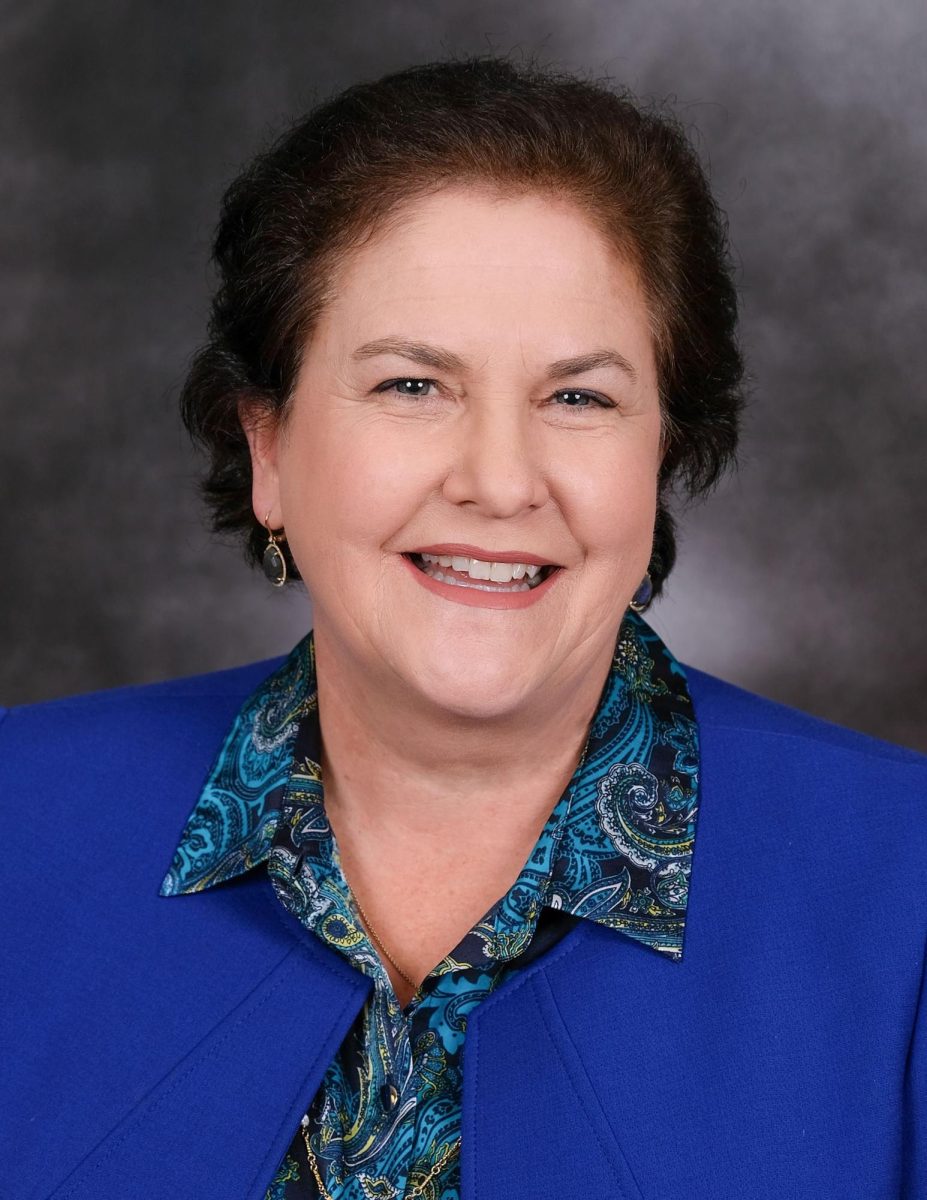‘Black Lives Matter’ genera atención en España
October 25, 2020

Después de las muertes de George Floyd y Breonna Taylor, el movimiento Black Lives Matter (BLM) envolvió a los medios, la televisión, el teléfono y las calles. Protestas como Ni Una Más, Fridays for the Future y BLM tomaron las calles de países de todo el mundo.
Las tiendas locales y nacionales tenían carteles en su ventana con la declaración “Black Lives Matter.” Se organizaron protestas y personas influyentes en las redes sociales, así como celebridades, abogaron por el movimiento.
Meghan Roy, junior en la escuela de Redwood, reflecta en las protestas locales en Marin County.
“[La protesta] de Redwood, que fue dirigido por estudiantes de SOAR, hizo un muy buen trabajo al reunir a todos y discutir por qué estábamos todos allí. Todos estaban apasionados por la causa que apoyamos, así como por el movimiento. Solo espero que la gente continúe mostrando su apoyo y no permita que esto sea como una pequeña fase por la que pasaron todos, debería pensarse en ella todo el tiempo,”dice Roy.
Racismo es algo que los Estados Unidos ha tenido que lidiar con por mucho tiempo, debido a su historia con esclavitud, injusticia criminal y la contuniación de racismo sistimático. Sin embargo, el movimiento BLM se extiende mucho más allá de los E.U incluso ha aumentado el impulso en países como España.
Alberto Aparicio es un nativo de España que corrientemente enseña español en Redwood. Visita regularmente su país de origen y cree que es fundamental que se aborde el racismo en todo el mundo.
“[El movimiento de Black Lives Matter] es necesario! Es importante concenciar a la gente de que se esta reporodiciendo violación de los derechos de las personas de color,”dice Profesor Aparicio.
Según Naciones Unidas, España tiene un largo historial de discriminación racial. Una encuesta realizada por la FRA mencionó que el 42% de los nortíeafricanos y árabes en España informaron haber sido detenidos por la policía, mientras que solo el 12% de los blancos lo experimentó. El acoso policial en España tiene importantes lagunas en la protección de las personas afrodescendientes, y es solo un ejemplo del racismo “endémico” presente en el país.

Alejandra Martinez, una estudiante de Hamelin Laie International School en Barcelona, es parte de varios grupos de activismo como “Fridays for Future” y el movimiento de BLM.
“Normalmente se trata de separar Black Lives Matter en los Estados Unidos, y la gente piensa que eso solo pasa allí pero no son conscientes que en nuestro transporte público, en nuestras calles todas esa injusticias que vemos en la tele y que parecen tan lejanas también pasan aquí”,dice Martinez.
Martínez también se refirió a los obstáculos que muchos inmigrantes tienen que atravesar para encontrar trabajo debido a su origen étnico.
“Las empresas y industrias abusan de los inmigrantes en la fuerza laboral. Les hacen trabajar más horas, les dan trabajo físicamente más duro sin proporcionarles el equipo necesario y les pagan menos,”dice Martínez.
El 7 de junio, al igual que en EE. UU., Barcelona protestó pacíficamente contra los continuos abusos hacia los ciudadanos negros y comparó la muerte de George Floyd con la muerte de 14 personas que intentaban cruzar la frontera de Marruecos a España. A pesar de que los migrantes estaban desarmados, la policía siguió utilizando fuerza letal para hacerlos retroceder. La policía local asegura que cerca de las sedes de la Generalitat de Catalunya y del Ayuntamiento de Barcelona se llevaron a cabo unas 3.000 manifestaciones de BLM.
“Hubo unas memoriales donde llevamos flores, y las organizaciones bailaron y asieron rituales típicos de sus países, y otras fueron más como protestas pero eran también muy tranquilas. No hubo violencia,” dice Martinez
Ex estudiante de Redwood, Layla Schmidt atiende la escuela Hamelin Laie International en Barcelona. Schmidt toma clases de política global y ha estado aprendiendo del movimiento Black Lives Matter, y ha aprendido más a problemas de raza en su clases y se ha vuelto más consciente del racismo sistemático en su comunidad.
“Hemos hablado mucho más sobre eso en clase. Hablamos sobre cómo es principalmente en los Estados Unidos, pero también sobre cómo está sucediendo en todo el mundo y cuán global es el problema”,dice Schmidt.
Redwood y las escuelas locales de Marin también han convertido en una prioridad educar y difundir la conciencia sobre el movimiento BLM. Una estudiante de SOAR, Olivia Letts, explica las formas en que Redwood está actuando.

(Foto cortesía de Alejandra Martinez)
“Corrientemente [para SOAR], estamos trabajando en una propuesta para la administración de la junta… Esto definitivamente afectará a Redwood y esperamos implementar una política antirracista y de no tolerancia. Que es algo que se espera que se emplee en la vida diaria de los estudiantes, los maestros, el personal y la administración, ” dice Letts.
Letts y Martínez esperan crear conciencia al seguir participando en protestas y organizaciones antirracistas, para ayudar a las familias y personas que emigraron a España de la misma manera que ella.
“Las personas piensan que porque venimos de diferentes países que no somos inteligentes o no tenemos educación. Pero la verdad es que si lo tenemos, pero a veces el lugar en donde estamos no tiene los recursos que necesitamos.” dice Martinez
English Translation:
After the deaths of George Floyd and Breonna Taylor, the Black Lives Matter (BLM) movement enveloped the news, and social media. Worldwide, protests such as Ni Una Más, Fridays for the Future and BLM took to the streets.
Many local and national stores put up “Black Lives Matter” signs on their windows and protests were organized in which both social media influencers and celebrities advocated for the movement. Redwood junior Meghan Roy was very positive about local protests in Marin County.
“The one at Redwood, which was led by Students Organized for Anti-Racism (SOAR) students, did a really good job of bringing everybody together and discussing why we were all there. Everyone was passionate about the cause that we were supporting, as well as the movement. I just hope that people continue to show their support and don’t let this be just like a little phase everyone went through, it should be thought of all the time,” Roy said.
Racism is something that the United States has dealt with for a long time, due to its history with slavery, immigration and ongoing systemic racism. However, the BLM movement extends far beyond the U.S., and has even gained momentum in countries like Spain.
Alberto Aparicio is a native of Spain who currently teaches Spanish at Redwood. He regularly visits his home country and believes it is essential that racism is addressed all around the world.
“It is important to make sure people are aware of the violation of rights against people of color and make sure that it is being reported,” Aparicio said.
According to the United Nations, Spain has a long record of racial profiling. A survey done by the FRA mentioned that 42 percent of North African and Arab people in Spain reported being stopped by the police while only 12 percent of white people experienced it. Police harassment in Spain has major gaps in protecting people of African descent, and is just one example of the racism “endemic” present in the country.
Alejandra Martinez, a student at Hamelin Laie International School in Barcelona, is active in various activist groups including “Fridays for Future” and the BLM movement.
“The BLM movement is normally kept separated from other countries because people think that is an issue that only pertains to the U.S., but they aren’t aware that there is racial injustice on our streets too. People think it’s an issue far away, but in reality it is something that is present in our day to day [lives],” Martinez said.
Martinez also stated that many of the obstacles faced by immigrants while finding a job is because of their ethnicity.
“Companies and industries abuse immigrants in the workforce. They make them work more hours [and] give them physically harder labor without providing them with the necessary equipment and pay them less” Martinez said.
On June 7, similar to the U.S., Barcelona peacefully protested against the continual abuse towards black citizens and compared the death of George Floyd to the death of 14 people who were trying to cross the border from Morocco to Spain. Though the migrants were unarmed, the police still used deadly force to push them back. Local police claim that around 3,000 BLM demonstrations were held near the headquarters of the Catalan government and Barcelona City Council.
“There were some memorials where people brought flowers, and the organizations danced and performed typical rituals of their home countries, and others were more like protests but they were also very calm. There was no violence,” Martinez said.
Former Redwood student Layla Schmidt, a classmate of Martinez, began following the BLM movement through her global politics class and has since become more aware of the systematic racism that perpetuates racial profiling in Spain.
“We talked about how it’s mostly in the United States, but how it’s also happening all around the world, and just how global of an issue it is,” Schmidt said.
Redwood and schools local to Marin have also made it a priority to educate and spread awareness about the BLM movement. SOAR student Olivia Letts explains the ways that Redwood is working on a anti-racist stratagem.
“Currently [for SOAR], we’re working on a proposal to the board administration… This will definitely affect Redwood and we will hope to implement an anti racist, no tolerance policy. Which is something that will be hopefully employed into the daily lives of students and teachers and staff and administration,” Letts said.
Martinez and Letts hope to spread awareness by continuing to participate in protests and anti-racism organizations. Martinez hopes to help families and people who migrated to Spain the same way she did.
“People think that because we come from different countries we are not smart or we have no education. But the truth is that we do but sometimes the place where we are from do not have the resources we need to succeed in life,” Martinez said.








